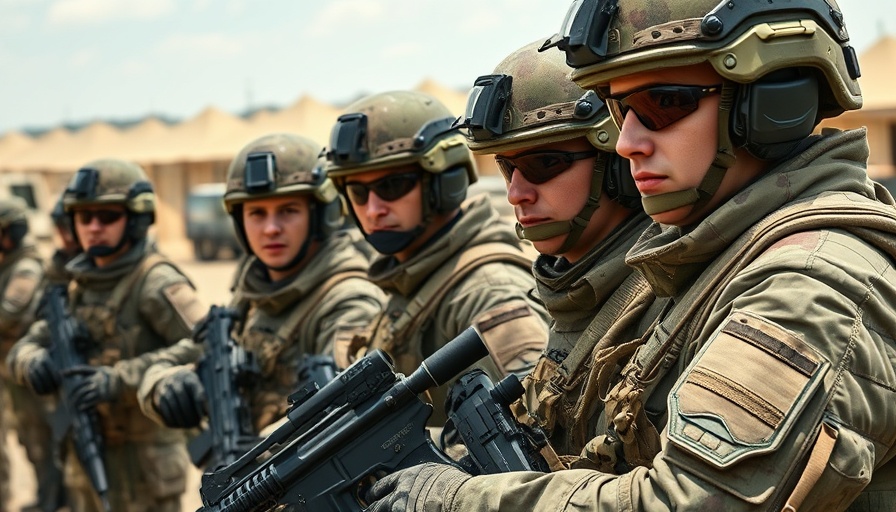
Understanding the Deployment: Why Kosovo Matters
The training exercise for the Army National Guard soldiers heading to Kosovo is not just a routine operation; it signifies the strategic importance of the region in the current geopolitical climate. Kosovo, located in the heart of the Balkans, has been a focal point since the Yugoslav Wars in the late 1990s, and the presence of peacekeeping forces, including U.S. troops, underscores ongoing commitments to stability and security in a region that has seen its share of conflict.
The Training: Preparing for Challenges Ahead
Recently, a group of about 100 soldiers from the National Guard assembled for intensive training in preparation for their deployment. This includes exercises focusing on operational readiness, crisis response, and collaborative tactics with NATO allies. These soldiers are enhancing their skills not only for combat readiness but also for peacekeeping roles that are essential in helping local communities. Their efforts demonstrate a commitment to broader NATO missions, aimed at fostering safety and diplomatic relations.
Historical Context of U.S. Involvement in Kosovo
American military involvement in Kosovo dates back to the late 20th century, particularly the 1999 NATO bombing campaign aimed at halting ethnic cleansing. The decision to deploy forces was controversial but ultimately pivotal in shaping the future of the region. Since then, the U.S. has maintained a presence, demonstrating enduring support for peace and stability. This historical backdrop enhances the significance of the current deployment and training exercises, as they continue a legacy of commitment to international security.
The Social Connection: Community Support for Troops
Communities often rally around their soldiers before deployments, providing emotional support and recognition for their sacrifices. Events held to honor these troops serve to strengthen community bonds while reminding the public of the responsibilities and challenges faced by those serving overseas. As the soldiers prepare to leave, they carry with them the well-wishes of their families and friends, reinforcing the shared values of pride and duty.
The Future: Predictions and Opportunities in Global Security
As NATO adapts to emerging threats, the role of U.S. forces in places like Kosovo may evolve. Experts predict increased collaboration among member nations focused on cybersecurity and hybrid warfare, necessitating comprehensive training for soldiers. This readiness positioning not only addresses present security needs but also anticipates future challenges, preparing troops for scenarios that extend beyond traditional combat.
Practical Insights for Understanding Military Deployments
For those looking to comprehend military deployments better, it is essential to stay informed through credible news sources. Understanding the frameworks that guide military action, such as NATO's charter and recent defense strategies, can provide clarity. Engaging in community discussions and attending informative events can also offer insights into how deployments impact both local and global contexts.
Emotional and Human Interest Perspectives
The impact of deployment on families and communities is profound. Soldiers face the emotional strain of leaving loved ones behind, while families deal with uncertainty and concern for their safety. Sharing personal stories of bravery and resilience enriches the narrative surrounding military service and fosters a deeper appreciation for sacrifices made.
Conclusion: Supporting Our Soldiers and Understanding Their Mission
As we follow the deployment of these Army National Guard soldiers, let us reflect on the importance of their mission in Kosovo. Their training and readiness not only reflect their commitment to serving our nation but also serve as a reminder of the continuing need for peace and stability in our world. By staying engaged with current events and supporting our troops, we can all play a part in promoting a better understanding of their important work.
 Add Element
Add Element  Add Row
Add Row 



 Add Row
Add Row  Add
Add 


Write A Comment